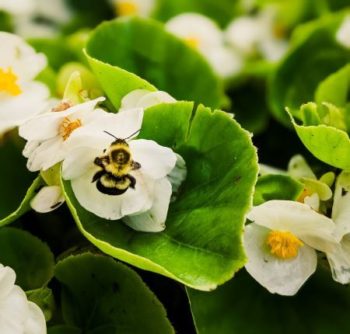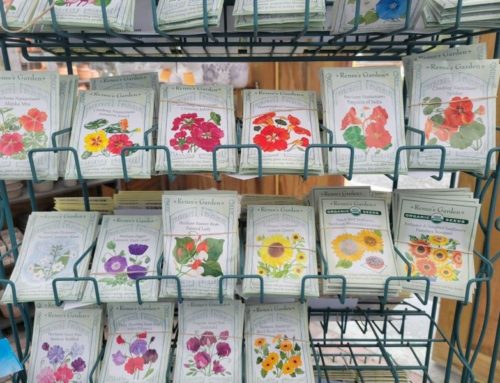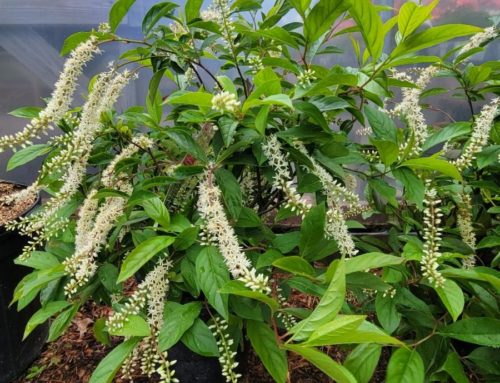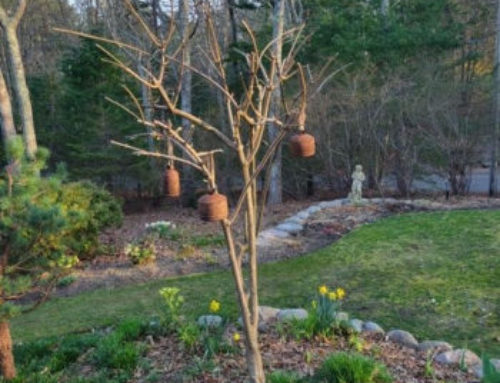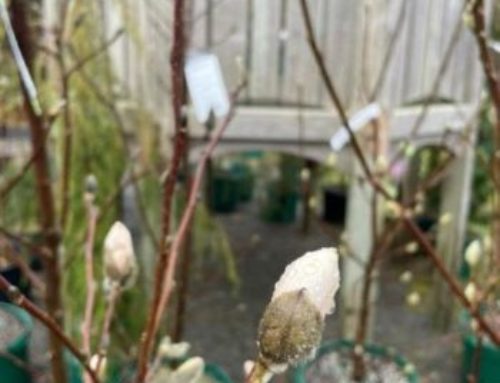Do you listen to podcasts? The gardening ones we love (A Way to Garden, Growing Greener, Into the Garden with Leslie, Plantrama (with our friend C.L.), Let’s Argue About Plants) often have authors as guests. Recently we heard Jessica Wallister speak of her newest book Attracting Beneficial Bugs to Your Garden – A Natural Approach to Pest Control. Eye-opening indeed.
We’ve been proselytizing about planting for pollinators and planting natives. How about planting to attract beneficial insects? Another gardening strategy aimed towards creating an ecosystem that will take care of pests that plague your plants while you stand by.
NEW RULES for Outdoor Pest Problems:
For awhile the advice has been only organic pest solutions. With the goal of creating balanced, healthy ecosystems some now recommend NO pesticides at all. Used as directed, organic pesticides won’t harm people but can hurt the “good bugs”. Part of this laissez faire insect control strategy is to sit on your hands. Give the good, beneficial bugs time to find the unwanted pests and get them under control. Populations of bad and good bugs ebb and flow. If this new approach appeals to you, order her book from a local bookstore or from your public library. The research reported is based on real science with lots of photos and is very readable. Just the right amount of humor too.
Naturally, some may jump on this bandwagon with both feet, some tentatively. Embrace what works for you. Many of the suggested plants and insectary garden design tips will meld with what you already have going. Most of the plants are familiar, some are native. All attract “good bugs”. Diversity is critical – different types of flowers for different kinds of mouthparts. We were nodding in agreement as the author emphasized planting for early and late insect activity. March – November at the least. We highly recommend Jessica’s book to you.
Click here for the Best Plants for Attracting Beneficial Bugs compiled from her suggestions. Many arrived from a CT grower today. We will stock as many as we can through the season.
